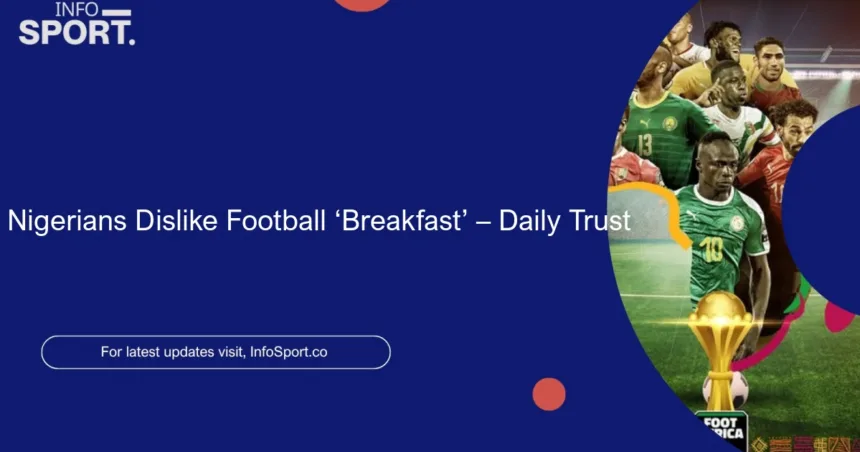Nigerians Hate Football ‘Breakfast’ – Daily Trust
Following their inability to secure points in the recent clash against South Africa during the 2026 FIFA World Cup qualifiers, the Super Eagles have once again left their ardent supporters feeling the painful sting of “breakfast.” This term, a popular Nigerian slang—especially among younger generations—serves as a metaphor for heartbreak. Just as the fans recall the disappointment of missing out on the World Cup in Qatar, they now face the grim prospect of another failed qualification.
Struggles in Qualification
With only two wins in eight matches, the Super Eagles sit precariously in third place with 11 points behind group leaders South Africa, who boast 17 points. Historical data shows a troubling trend: the team has not only faltered in performance but also in meeting fans’ expectations. For instance, in 2022, they lost the chance to qualify for the World Cup, conceding crucial points to rivals like Ghana. If these numbers persist, the Super Eagles will be mathematically eliminated from the race for both the World Cup and the playoffs for Africa’s best losers.
Implications for Leadership and Fans
The fallout from this sporting debacle could be severe, particularly for the Nigerian Football Federation (NFF) and its president, Alhaji Ibrahim Gusau. A comparison of past failures reveals a pattern where leadership changes often follow poor performances. The pressure is mounting as opinions like that of former Super Eagles captain John Mikel Obi call for a complete overhaul of the NFF should Nigeria not qualify.
For fans, disappointment could lead them to seek support elsewhere, but the repercussion extends beyond mere fan loyalty. The lack of success might jeopardize the careers of key players and officials, creating a ripple effect throughout Nigerian football.
Conclusion
In sum, the Super Eagles’ current trajectory raises critical questions about the future of Nigerian football. As the team gears up for pivotal matches, fans and management alike face the stark reality that their once-cherished ticket to the World Cup is slipping away. To avoid serving another “breakfast,” a drastic shift in performance and strategy is paramount.
As the final matches approach, supporters are urged to engage and voice their concerns. Will the Super Eagles rise to the occasion, or will heartbreak be on the menu once again?
